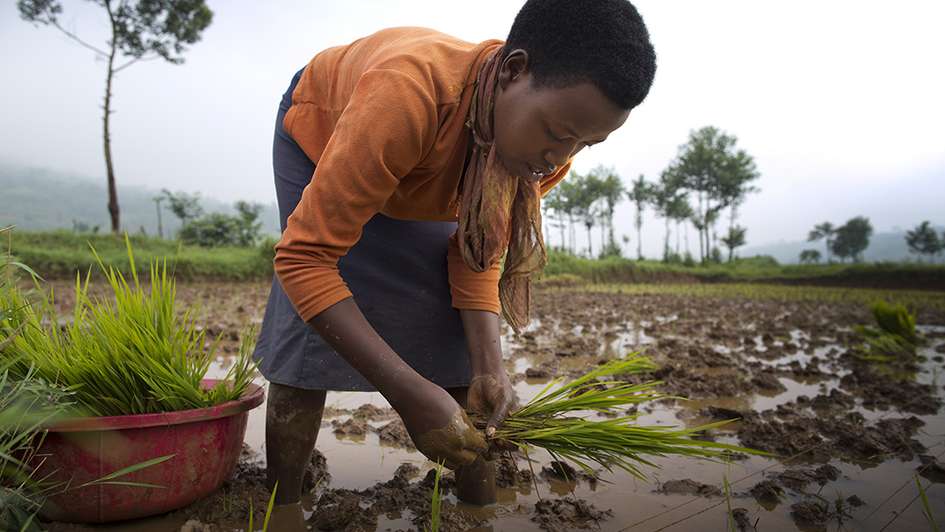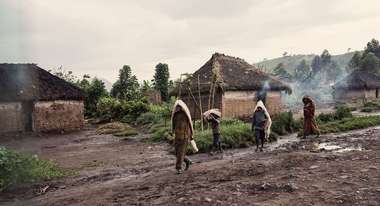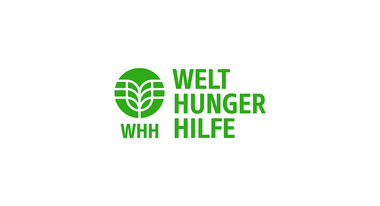Zero Hunger means all Hands on Deck and all Options on the Table
Welthungerhilfe was honored to have Ms Gerda Verburg, Chair of the Committee on World Food Security as a panelist at the POWA-Conference.

A world without hunger is within our reach. We have the resources, the tools, the technology, and a shared desire to see it happen. 2015 marks an important year in our efforts to recommit to ending hunger as we agree on the Sustainable Development Goals. Since 2000, 63 countries have reached the hunger target of the Millennium Development Goals. Since the 2008 World Food Summit, we have seen increasing global commitment to address food security and nutrition with the adoption of the Voluntary Guidelines on the Governance of Tenure of Land, Fisheries, Forests, the recent adoption of the Principles for Responsible Investment in Agriculture and Food Systems, and with the increasing commitments of governments to the Right to Food.
And yet 1 billion people are still living in extreme poverty and at least 2 billion suffer from malnutrition.
We are making progress but if we are truly serious about achieving zero hunger, we need to do better. Doing better means all hands on deck and all options on the table.
Achieving food and nutrition security touches almost every aspect of our lives and is impacted by decisions and events in almost every sector – from energy, to water, to climate change, to health, infrastructure, technology, transport, and so on. One of the main obstacles to progress has been our approach. We need to stop approaching food and nutrition security in silos and fully embrace the inter-linkages in order to facilitate the multi-dimensional actions required. Within the Committee on World Food Security (CFS), we have tackled a number of controversial topics which require multi-sectoral action from all stakeholders including climate change, land tenure, responsible investment, and food loss and waste, among others. While the divergence of views has been vast, we have been able to successfully develop guidance which will help us move closer to achieving food security and nutrition by working together. Addressing food security and nutrition has at times been a minefield of polarizing debates, when in fact the best solutions are often found when we can combine and build on ideas and options from across the spectrum.
The upcoming G7 summit in Berlin in June this year presents another opportunity for us to reflect on how we – rich countries, poorer countries, private sector, civil society, farmers – all need to look at our individual strengths in order to work together to collectively end hunger. There can be a tendency to approach food security and nutrition through a ‘victim’ or ‘aid’ approach, when actually we have seen that empowering farmers and communities to provide for themselves and their families is what presents lasting benefits.
The G7 can better focus on empowering smallholders by first making sure that they are listening to what smallholders are saying themselves about their needs and what will provide the enabling environment for them to achieve food security and nutrition for their families and produce for markets worldwide.
I am continuously reminded by the smallholders’ and family farmers that participate in the Committee on World Food Security that while they are ‘small’ they are also strong and many.
- Smallholders account for more than 95 percent of agricultural holdings and feed up to 80 percent of the population in Sub-Saharan Africa and Asia.
- They continue to be the largest investors in their own farming as they seek to increase productivity, improve their own well-being, and provide nutritious food for their families and communities.
However, they need us to act in concert with them, and that shouldn’t mean necessarily seeking to attach them to global value chains, but to explore their leadership role in addressing food security and nutrition in their own communities and national context. This means not just focusing on increasing productivity but assessing needs both on farm and off farm, and making sure that smallholders are part of the conversations to determine how to achieve zero hunger.
When we are talking about empowering smallholders’ and communities, we are especially talking about empowering women.
Despite the fact that women make up 43 percent of the agricultural labour force in developing countries, they also make up a disproportionate portion of the world’s poor with estimates as high as 70 percent. This is largely due to the fact that they still do not have equal access to inputs and services such as land, credit, education, training, innovation, and new technologies. If women had the same access to resources and services as men, global malnutrition could be reduced by up to 17 percent, or 340 million people.
We can only do better, if we are willing to acknowledge what hasn’t worked well in the past and enact changes quickly. We don’t have time to waste while people are still starving and suffering. We must focus on our common vision – a world without hunger in our lifetimes – to build bridges across existing divides and join hands in successfully and sustainably feeding the world.
February 2015, by H.E. Gerda Verburg, Chair of the Committee on World Food Security.
Hunger can be eliminated in our lifetime. We all can be part of the solution says Gerda Verburg, Chair of the Committee on World Food Security.
Dr. Gerd Müller, Bärbel Diekmann (left.) and Gerda Verburg (right.) at the conference "Setting the Course for a World without Hunger" in Berlin.
When we are talking about empowering smallholders’ and communities, we are especially talking about empowering women. Women make up 43 percent of the agricultural labour force in developing countries. © Pilar
+++++++++++++++++++++++++++++++++++++++++++++++++++++++++++++++++++++++
“Challenges for the goal to end hunger by 2030 – What are the expectations on the German G7 presidency?” Welthungerhilfe was honored to have Ms Gerda Verburg, Chair of the Committee on World Food Security as a panelist at the POWA-Conference “Setting the Course for a World without Hunger – Dialogue on the Role of the G7” in Berlin.






